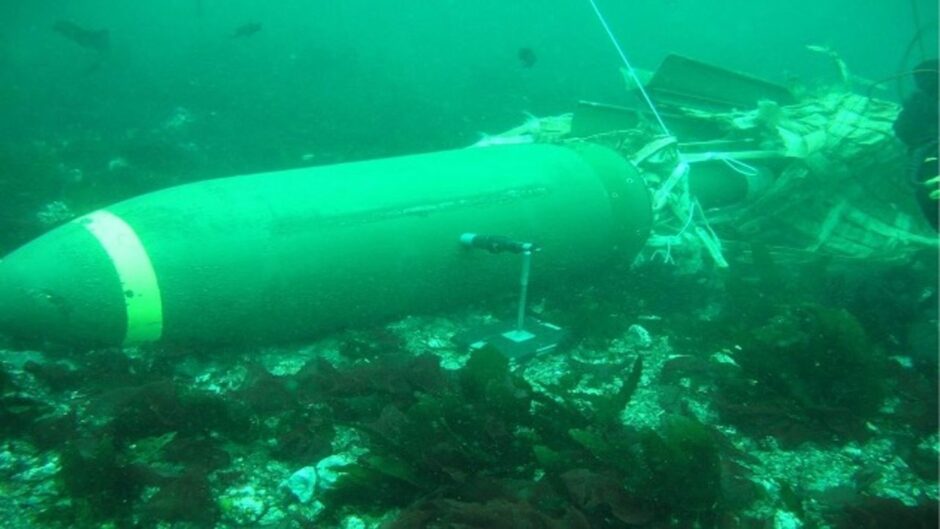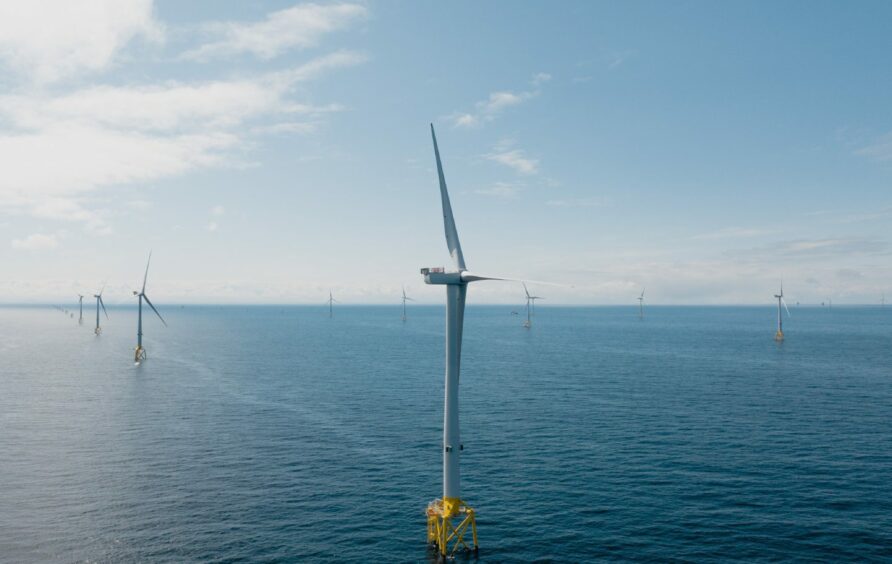Aberdeen-headquartered munitions disposal firm EODEX UK has completed a “groundbreaking” clearance campaign at the site of the Moray West offshore wind farm.
Ocean Winds – a 50:50 joint venture between ENGIE and EDP Renewables – is building the 880MW Moray West project in the outer Moray Firth, next to the existing 950MW Moray East scheme.
EODEX said it removed over 83 items of unexploded ordinance from the Moray Firth site using a lower impact method which is less disruptive to marine life.
The company cleared the explosives using a “low order deflagration technique”, which neutralises the munition by “burning out” the contents.
The process reduces the noise and shock waves caused by “high order” detonations previously linked to whale mass stranding events.
EODEX said high order detonations can cause temporary and sensory loss in marine mammals as far as 25km away as well as damage to the seabed.
Following the first 30 clearances of the operation, EODEX said independent noise monitoring showed the deflagration technique was quieter than anticipated.
In addition, the company said it removed all scrap debris and waste from the seabed without leaving behind explosive residue or cratering damage to the seabed.
EODEX hails ‘large-scale success’
EODEX chief executive Simon Morgan said the “large-scale success” of the clearance operation demonstrated the reliability, safety and effectiveness of low-order deflagration techniques.
“For decades, industry has cleared munitions from the Second World War using Second World War techniques: just blowing them up,” Mr Morgan said.
“This has caused immense damage to the marine environment and sea creatures – and that’s unforgivable when alternatives exist.
“As the only technique subjected to the full array of quarry and open sea trials, and with a track record of successful use in military circles, we have always been totally confident in our system.”
Environmental campaign group Stop Sea Blasts also welcomed the clearance operation.
The group wants to see the use of high order detonations restricted, and spokesperson Dame Joanna Lumley called on the government and regulators to introduce stricter rules on offshore detonations.
“I know that if they could talk, all our wonderful sea creatures would surely add their voices to that call too,” Dame Joanna said.
Moray West cleared for installation
The clearance campaign at the Moray West site ran from January to September this year, with cleared unexploded ordinance ranging from naval projectiles to anti-submarine weapons, sea mines and air-dropped bombs dating from both World Wars.
Moray West offshore wind farm project director Pete Geddes said with the site now cleared in an “environmentally safe way”, offshore installation works can commence on programme.
“Avoiding High Order detonations on this project has reduced the potential for environmental harm, been well received by key stakeholders and demonstrates our commitment to working with innovators to drive best practice in the sector,” Mr Geddes said.
In October, the first batch of transition pieces for the project were shipped by supplier Lamprell through its newly commissioned renewables production line in the UAE.
Lamprell secured the contract – said to be worth between £100m and £200m – last year.
Recommended for you




 © Supplied by EODEX
© Supplied by EODEX © Supplied by Ocean Winds
© Supplied by Ocean Winds






